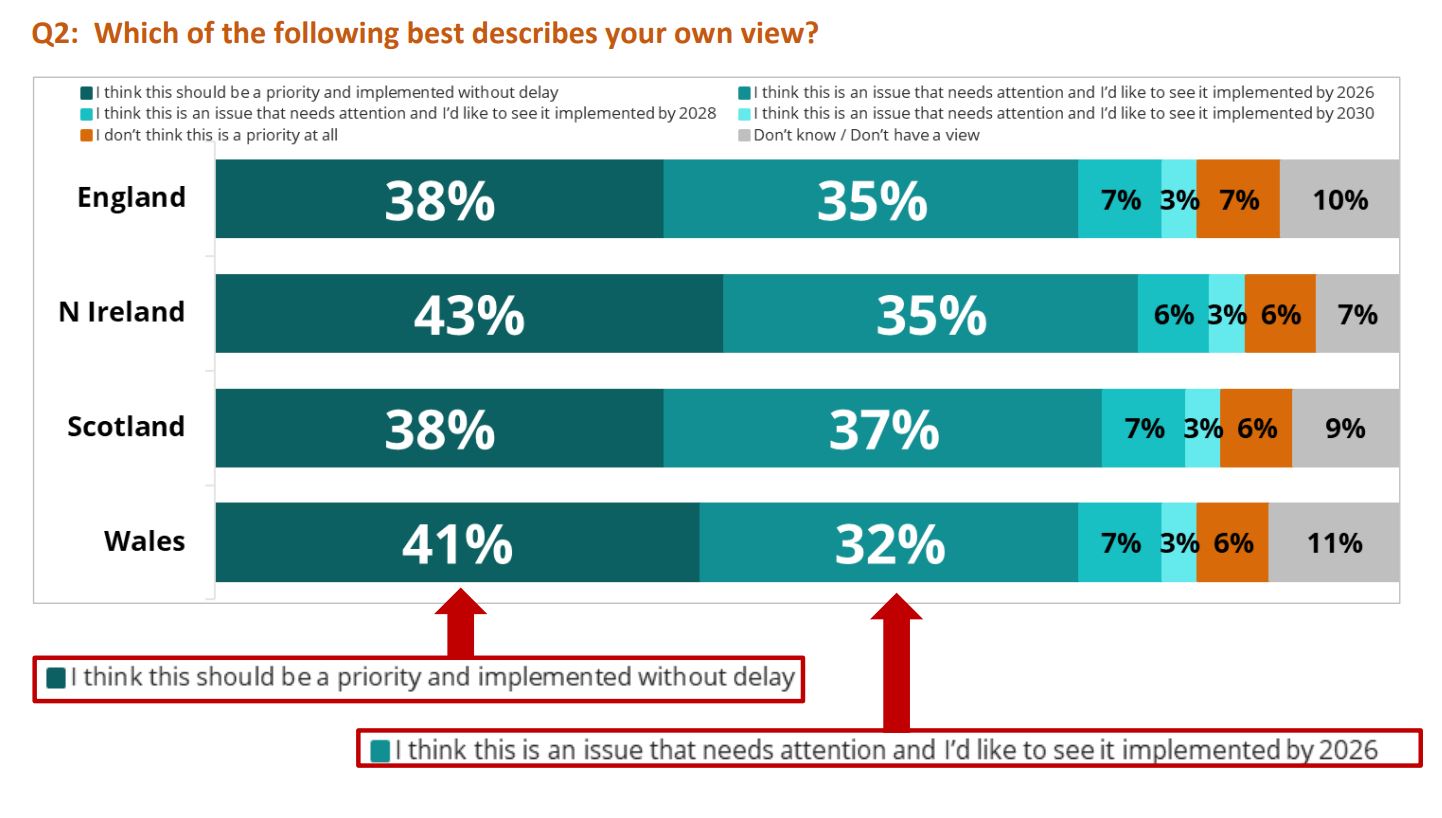The survey was conducted between 8 -14 September 2023 by independent survey experts Icaro Consulting.
The government’s ‘consistent recycling’ policies are planned to enable all households across the country to be able to recycle the same broad range of packaging items, and ensure packaging labelling has unambiguous messages of either ‘Recycle’ or ‘Do not recycle’.
While Rishi Sunak scrapped any plans for ‘seven bins’ last month, consistency was replaced by ‘Simpler Recycling’, which is set to contain the same policies (see letsrecycle.com story).
According to the INCPEN survey, public support for consistency and labelling policies in England is at 82%. “Even this extremely high level is exceeded in all of the devolved nations: Northern Ireland 86%, Scotland 85% and Wales 84%,” INCPEN added.
The association explained that the results represent a “crystal clear message to all four governments of the popularity of the policies” as every demographic group analysed in the INCPEN survey supported consistent recycling and labelling. That includes by age, gender, household income, rural or urban living, type of housing tenure and local recycling infrastructure.
Supported
Paul Vanston, the chief executive of INCPEN said: “These citizens’ survey results demonstrate beyond any doubt that consistent recycling and labelling policies are massively supported by the public across the whole of the UK.
“When added to the many calls from manufacturers, brands, retailers, councils and waste management sectors for the government to publish the policies from the 2021 consultation on consistency, the common public and industry message is ‘let’s get on with it’”.

Priority
INCPEN explained that its survey “delved deeper into the extent to which consistency policies are a priority for the public” and when implementation should be done.
An “overwhelming” 73% of English respondents said the policy should either be implemented without delay (38%) or by 2026 (35%). Wales matches England’s 73% while Scotland has a larger majority for getting on with it at 75% and Northern Ireland’s public still higher at 78%.
Mr Vanston added: “‘The public has made their position on consistency policies and timescales extremely clear. The challenge is now squarely on the government to swiftly publish the long-delayed confirmations of consistency policies; and then to mobilise actions with the packaging value chain to deliver improved household recycling opportunities in the speediest possible timescales.
“Yet further delays of consistency implementation are not what the public wants, which is why INCPEN wishes to foster an industry-wide call-to-action of ‘together, we’ve got this!”

Respondents
The UK survey comprised 5,089 respondents: England 2,515. Northern Ireland 519. Scotland 1,048. Wales 1,007. As UK surveys usually require around 1,000 respondents, this INCPEN survey has five times that number, which “creates a very high level of confidence in the results for all four UK nations”.
The INCPEN survey was conducted and completed the week before Prime Minister Rishi Sunak made his public announcements relating to recycling (i.e. commonly referred to as the ‘seven bins’ announcement). This means that INCPEN’s survey results “were not influenced in any way” by this.











Subscribe for free